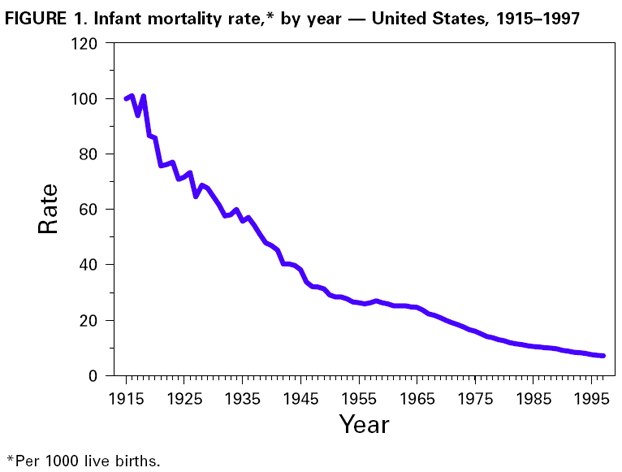The video embedded below, along with the draft script and supporting links, can be freely…
Memento Mori
by Brutus, who writes at The Spiral Staircase, where he specializes in reviews, armchair social criticism, diatribes, rants, and jeremiads. This essay is cross-posted here.
Prior to the 20th century, the specter of early death was never far from people’s minds. Accordingly, death was integrated into life, meaning that as a normal fact of life, everyday knowledge of death made life precious. Average life expectancy in the mid-40s back then masks the reality that people, if they survived childhood, did in fact get old. What lowered the average was infant and child mortality. Cemeteries with graves preserved from that era demonstrate this pretty clearly. When early mortality rates began dropping due to a variety of factors, including improved diet, hygiene, and medicine, it may well be that omnipresent awareness of early death receded while a sense of stalking death remained. Today’s child mortality rates vary widely across the globe, with many African and Southeast Asian countries still reporting rates well above 100.

As early mortality rates declined, so, too, have fertility rates. Factors balancing these two trends are too complex to sort and summarize succinctly, but it’s curious to observe that as GDP per capita rises, wealthy populations tend to fall below the minimum replacement rate of 2.33 children per woman. The cluster of poor countries along the vertical axis of the graph below suggests that some peoples are still over(re)producing, perhaps in part because a high rate of early mortality requires more births to raise a child to reproductive age successfully.

This excess of reproduction is reflected in human history prior to the 20th century and throughout biology, where many species, especially insects, have very large broods. Even small mammals reproduce in litters. But survival is exceedingly difficult, as the young are often killed and/or eaten by their own parents and siblings. Calls to mind Tennyson’s famous lines from his poem In Memoriam A.H.H. (1849):
Who trusted God was love indeed
And love Creation’s final law?
Tho’ Nature, red in tooth and claw
With ravine, shriek’d against his creed?
There is ample reason to remain mindful of death, despite its being shoved to the margins of awareness in the modern world. It may also be understandable why we would rather not acknowledge death, considering our forgotten history with early mortality and the hideousness of so many 20th-century wars and genocides. The biggest reason to be mindful, however, is simply that we are and always have been, like the rest of nature, in an ongoing, survival-of-the-fittest struggle, though survival pressure is also shoved to the margins of awareness.
An impressive article by Ross McCluney entitled “Intentional Ignorance” at his blog The Future of Humanity correlates population demographics with resource availability and provides this familiar graphic of world population extending back 12,000 years:
It should be obvious that exponential curves don’t lead to infinity but have hard ceilings, but we ignore that inconvenient truth. When world population falls back down the other side if the the curve, as it inevitably must, the population spike might be better described as a death spike (referred to elsewhere on The Spiral Staircase as a megadeath pulse). Popular culture has made this a big joke (see here as well):

Dr. McCluney’s headings are reproduced here to show the comprehensiveness of his survey:
Preamble
1. Introduction and Background
2. System Simulations
3. Reading the Records
4. Peak Oil, Peak Lithium, Peak Everything
5. Species Dieoff — Is that our fate?
6. Are We Smart Enough?
7. Political Failures
8. Are We Intelligent Enough Politically?
9. What’s a Person to Do?
10. PostScript
Although Section 5 acknowledges the possibility of human (and other) extinction, which is inevitable over evolutionary time anyway, the text doesn’t actually discuss or project what might happen with much clarity. For instance, he never uses the phrases mass extinction or extinction event so remains open-ended about our collective fate, though not thoughtlessly optimistic.
Others have read the same writings on the wall and come to the worst possible conclusion: near-term human extinction. See, for example, here, here, here, here, and here. (If I tend to cite the same websites again and again, it’s partly due to my limited intake of mainstream media — by choice — and my assessment that only a few individuals, certainly not governments or corporate entities, are capable of and willing to tell the truth, awful as it may be. The conspiracy of silence is actually pretty bizarre.) For these truth-tellers, near-term human extinction isn’t merely a scenario, it’s a surety on par with death and taxes. But the death contemplated here isn’t the final resting place or other euphemistic mythology we all know will be our individual fates. Rather, it’s the extinction of homo sapiens sapiens sooner rather than later, and with it most of the rest of the biosphere. Quite a different matter. That’s the meaning of specter, by the way:
noun — 1. a visible incorporeal spirit, especially one of a terrifying nature; ghost; phantom; apparition; 2. some object or source of terror or dread
If the mounting evidence of this eventuality, delayed only slightly (perhaps a few decades, but who really knows? — by definition we won’t be around to witness it), hasn’t yet gotten through to you, I accuse you of being brain dead. Scared, haunted, dispirited, depressed, and even nihilistic I can understand; ignorant or in denial I can’t. Not anymore. So grok this: it’s done, we’re cooked / doomed / screwed / fucked, our fate is sealed, it’s all over but the shouting (and I would add, the suffering). But memento mori, for what life is left to us is precious and shouldn’t be squandered like we did engineering for ourselves an early death as a species.
